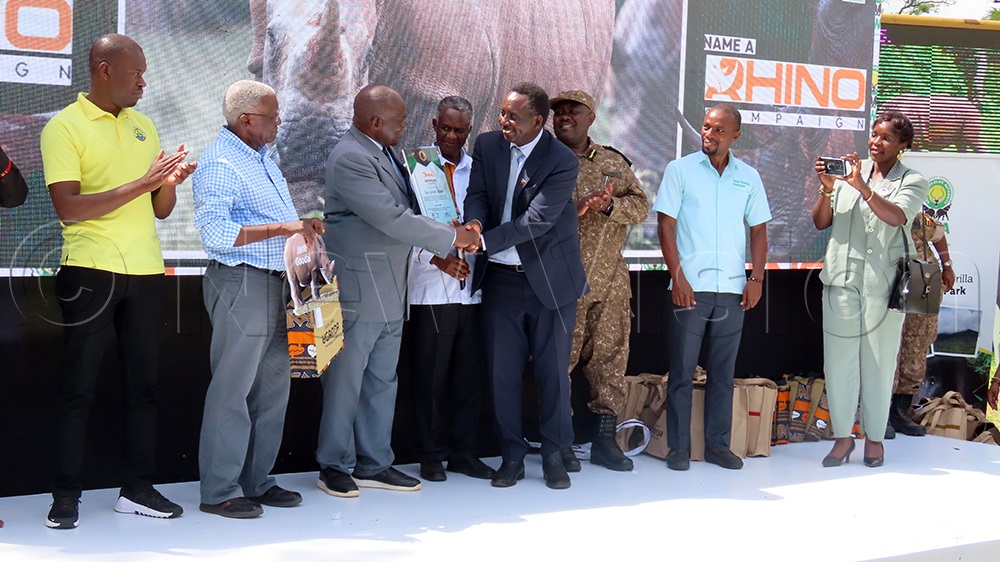Renowned primatologist, ape protector Jane Goodall dies
Goodall, who was on a speaking tour in California, reportedly succumbed to natural causes. She had been scheduled to visit Uganda this November...
World-renowned primatologist Dr Jane Goodall. (Courtesy)
______________
World-renowned primatologist Dr Jane Goodall, whose work redefined humanity’s understanding of animal behaviour and emotions, has died aged 91.
Her passing was confirmed by the Jane Goodall Institute–Uganda on October 1, 2025.
Goodall, who was on a speaking tour in California, reportedly succumbed to natural causes. She had been scheduled to visit Uganda this November, where conservationists were preparing to showcase a newly discovered group of ground-nesting chimpanzees in Bwindi Impenetrable Forest, a finding she would have celebrated as yet another chapter in her lifelong fight to protect endangered primates.
“We were preparing to host her as always,” said James Byamukama of the Jane Goodall Institute in Uganda.
“She was excited about our recent discoveries, which enrich her passion for chimpanzees. Her struggle for their survival is leaving a legacy we must now carry forward.”
One of the Rhinoes was named Jane Goodall, and the ED Jane Goodall Institute Uganda, James...receives the certificate from Minister of Tourism Wildlife and Antiquities Tom Butime and Minister of State for Tourism Martin Mugarra. (Photo by Titus Kakembo)
A trailblazer in science and conservation
Born in London on April 3, 1934, Goodall arrived in what is now Tanzania in 1960 to study wild chimpanzees in Gombe Stream National Park. With no formal scientific training at the time, she broke through barriers that had excluded women from such research. Her groundbreaking observations: Chimpanzees using tools, showing complex emotions, and forming social bonds, upended scientific dogma and forced the world to reconsider the line between humans and other primates.
Her methods were unconventional but effective. Rather than numbers, she gave her chimpanzee subjects names. She recorded their affection, grief and rivalry, painting a picture of animals with personalities, families and emotions. In doing so, Goodall not only revolutionised ethology but also influenced generations of scientists, conservationists and animal lovers worldwide.
Uganda’s special connection
Uganda has long been part of Goodall’s conservation orbit. With its chimpanzee populations in Kibale, Budongo, and the forests of Bwindi, the country is home to some of Africa’s most critical primate habitats. Officials here recall her visits with admiration.
James Musinguzi, the executive director of the Uganda Wildlife Education Centre (UWEC), shared fond memories:
“Somehow, the chimpanzees at UWEC and Ngamba Island Sanctuary would instantly feel at ease with her. She fed them, sat among them, and it was as if they knew she belonged. The bond was instant.”
Presidential Advisor on Tourism and a veteran conservationist, Lilly Ajarova, described Goodall as her lifelong inspiration:
“Meeting Dr Goodall in person and watching her in the 1965 CBS TV special Miss Goodall and the World of Chimpanzees changed my life. From then on, I knew conservation was my calling. Once that bug bit, I can never let go.”
Beyond research, Goodall became a tireless advocate for conservation at a time when the natural world faced increasing threats from deforestation, climate change and human encroachment. She spoke at schools, parliaments, and the United Nations, urging global action. Her “Roots & Shoots” programme empowered millions of young people worldwide to take part in conservation and humanitarian projects.
In Uganda, her work is amplifying efforts to preserve endangered chimpanzee habitats in places like Kibale National Park and Budongo Forest, where pressures from agriculture, charcoal burning, and settlement continue to shrink wildlife ranges.
A legacy that lives on
Her death marks the end of an era, but her influence will outlive her. For conservationists in Uganda and beyond, Jane Goodall’s life's work serves as both a guide and a challenge: To defend what remains of our natural heritage.
Out of wildlife, Goodall was married twice: First to wildlife photographer Baron Hugo van Lawick from 1964 to 1974, with whom she had a son, and then to Tanzanian politician Derek Bryceson from 1975 until he died in 1980. She remained widowed after her second husband's passing.
“Dr Goodall taught us that protecting wildlife is not a luxury but a necessity for human survival,” said Byamukama.
“Her candle may be out, but the flame she lit will never die. One of the rhinos in Ziwa Rhino Sanctuary was named Jane Goodall for $10,000 [about shillings 35 million] on September 22, 2025.”